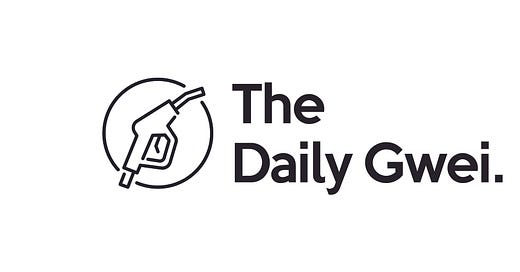We all know that Ethereum is a decentralized and permissionless platform that allows anyone to build whatever they want on it. Due to this, and as Scott so eloquently puts it below, Ethereum is easy to join but hard to dominate. Though I would actually go a step further and say that it’s not only hard, it’s near-impossible for any single entity or small group of entities to dominate the network - and this only gets even harder as Ethereum continues to grow.

You can think of Ethereum as the exact opposite of a nation state (an ‘inverse nation state’, if you will). This is because nation states seek to centralize - they want to acquire as much power as possible and concentrate it within the nation state borders - but Ethereum is designed so that it decentralizes over time. This means that each stakeholders relevance/power over the network actually diminishes as the network grows its network effect. Due to this, Ethereum attracts a certain type of “citizen” that wants to help Ethereum decentralize and the funny thing is, even those that seek to control Ethereum in some way end up helping it too (by bolstering the efforts of those wanting to decentralize it). This creates a nice little effect where Ethereum can autonomously decentralize itself while defending against centralizing forces.
Of course, there are some people in the community that have a more influential voice than others (core developers being a major one) but not even the core developers have power over the network (they can’t force people to run malicious client code, for example). Their influence has also greatly diminished over time - for example, in the very early days of Ethereum’s existence (2015/16), the core developers were responsible for stewarding the entire network as the community was small - thus, they had a rather large influence. Now that the community consists of millions of people, thousands of developers & apps, hundreds of economic entities and other stakeholders, the core developers hold much less influence and thus, less power.
There are many other stakeholders within Ethereum that do their part to add value to the network - app developers, educators, economic entities (exchanges), infrastructure providers and more - but none of these stakeholders have any direct control over the network. Though in saying that, some of them could cause short to medium term pain to the ecosystem if they were to do something malicious. For example, if a major infrastructure provider such as Infura wanted to, they could shut their servers down completely as a sort of “denial of service” on their users. Now, while this wouldn’t disrupt the Ethereum protocol itself, it would disrupt a lot of the products and services that rely on Infura to interact with the Ethereum network. But this doesn’t mean that Infura has any dominance over the network - on the contrary, it shows that they can’t do anything malicious to the core protocol even if they wanted to.
I could go on forever about all the ways that Ethereum is decentralized and how it will continue to become even more decentralize but I’ll digress for now. As stakeholders in the network we all have our own roles to play in bringing Ethereum to the world while simultaneously working to ensure that it stays decentralized - I don’t believe that there is currently any other network in existence that is even playing in the same league as Ethereum when it comes to this (Bitcoin is playing its own game).
So let’s continue to decentralize Ethereum and create the greatest inverse nation state the world has ever seen!
Have a great weekend everyone,
Anthony Sassano
Enjoyed today’s piece? I send out a fresh one every week day - be sure to subscribe to receive it in your inbox!




